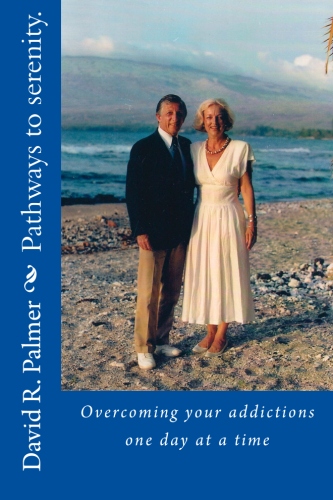 My name is Linda. I am a survivor of verbal, emotional, and sexual abuse in my marriage, and I struggle with multiple facets of co-dependency including pride, control, self-sufficiency, shame, and isolation. Jesus Christ is my Higher Power.
My name is Linda. I am a survivor of verbal, emotional, and sexual abuse in my marriage, and I struggle with multiple facets of co-dependency including pride, control, self-sufficiency, shame, and isolation. Jesus Christ is my Higher Power.
I was born in rural Alabama, the youngest of six children of Godly parents. My dad did sharecrop farming and later built houses. My mom worked hard at home and picked and chopped cotton to buy my school supplies and clothes. We were extremely poor, but I never felt ashamed because it didn’t seem to matter.
My Dad told me “there is no one better than you and you are no better than any one”. I felt loved, protected and safe.
I invited Jesus into my heart when I was 5 years old in my living room at home. While growing up, I lived for God the best I knew how, was active in church activities, prayed, studied God’s Word, and memorized Scriptures.
From fifth grade through high school, I had five really close girl friends. They were from different social, religious, and economic backgrounds, and they were my friends and “accountability partners.” We had no secrets, and we shared our dreams, hopes, fears, and struggles with life.
Shortly after graduation, my nephew introduced me to a charming friend of his who was different from all the other guys in my life. We had only dated a few months when he began asking me to marry him.
At first, I resisted because we didn’t have much in common, and he was not a Christian, but then he told me how his mom had never loved him and preferred his brother over him, and I felt sorry for him.
I remember my Mom, with tears streaming down her face, warning me that marrying him was not the right thing to do. But I told her that he had never had unconditional love, and I could love him enough to make a difference in his life. After a turbulent eight-month courtship we got married in October 1967. I learned shortly after the marriage that my husband drank occasionally and had kept it a secret from me. With his assurance that these things were “normal” in a marriage, he quickly introduced me to pornography and insisted on doing things that made me uncomfortable.
Even though I felt dirty, betrayed, and inferior, I began stuffing my seemingly unimportant feelings to try to please my husband. I felt my job was to “make the marriage work” and “make my husband happy” at all costs.
I became very self-sufficient and worked harder, taking on more responsibilities (that weren’t mine) trying to perform well enough so I could make my husband happy. Then I would be happy, and life would be good, I thought.
After my marriage, I stopped seeing or talking with any of my life-sharing girlfriends and started keeping secrets relating to my disappointment, fears and my husband’s drinking. Eventually I stopped attending church so I could spend more time on the weekends with my husband.
In those early years of marriage in Alabama, my husband said if I went to work, we could have more money, and then we would be happy, but, in a brief moment of clarity, I told him that if I went to work, it would be to support my two kids, not his alcohol habits.
When I would threaten to leave him, we would attend AA/Al-Anon meetings for a while, and he would promise never to drink again. He didn’t follow through with his promises never to drink again, and I didn’t follow through with my threats to leave.
My husband’s solution to our unhappiness was to move. In the first 10 years of marriage we moved 17 times. Near the end, we moved away from friends and family in Alabama to Arizona.
Here began my life of loneliness, isolation and deep denial. I put on a mask of happiness, strength and self-sufficiency. I looked like I had it all together, but I was really sinking deeper and deeper into despair and the secrets were multiplying. In Arizona with my husband working long hours in a copper mining town where the construction workers weren’t welcome and living in a tiny old trailer behind the city dump, my young kids couldn’t play outside alone because of rattlesnakes and other desert critters. We were living in the harsh Arizona desert, but my soul was in an even more desolate place.
Being isolated with no accountability and no one who knew me, I began to compromise my values and drink socially, going to clubs, dancing, and partying so I could “fit in”. After that, we moved around some more and finally landed in Little Rock in July 1977.
Shortly after our move to Arkansas, my husband was caught in an affair and forced to confess. He also confessed to many other affairs that began within the first few years of our marriage. I felt deceived, betrayed, worthless, and inadequate as a woman.
It took years of abuse and an attempt at suicide before I finally decided I needed help and began professional counseling in 1982. After a few months, however, I quit counseling because I now knew my problem was co-dependency, and I believed I could fix it myself.
Because my husband had yet another affair and since I had acquired a little wisdom through counseling, I first separated from him in September 1983 and filed for divorce.
But once again he talked me into staying only to betray me again. At the end of my rope, I attempted suicide for the second time, and it was only through God’s grace that I survived.
Several months later, I did finally get my divorce, and in trying to numb my pain, I continued in my own sexual addiction with one-night encounters, heavy drinking, and partying. I even betrayed my own most sacred value and had an affair with a married man. But no matter what I tried, the guilt and shame only increased.
While I lived my adult life trying to be what I thought others wanted of me, deep inside I longed to be loved and accepted. Because of the betrayal of my love and trust and my fears of rejection and abandonment I built high, thick walls of self-protection and isolation that became my prison. The same walls that kept me from painful relationships also kept me from good ones.
Looking back on my life, I can see the fingerprints of God. While I was running, trying to hide, and playing god, my Heavenly Father was pursuing me. My broken marriage, spiritual, emotional, and financial bankruptcy, raising two teenage kids alone, two failed attempts at suicide, and being totally alone drove me back to the loving, gentle Father who stood waiting with open arms for His prodigal daughter to return from the pigpen.
This was in June 1987, and my relationship with God was restored the instant I confessed my sin. Still, there was something missing in my Christian walk.
In my denial, I was still hiding behind my walls, buried in Bible study, prayer, and “ministries” to mask feelings of being unworthy and inferior to everyone. I was carrying lots of false guilt, shame and pain.
When I came to Celebrate Recovery (CR) in 2000 and began working the steps, I finally began to see my ugly pride and how I had tried to assume God’s role in my own life and the life of others. I came to realize that as long as I focused on other people’s problems and tried to fix them, I didn’t have to look at my own brokenness.
By following CR’s 12 Steps of recovery I was able to make progress at last. Step five, calling for a personal inventory and confession, was especially life changing.
In doing the personal inventory it required, I was able to see my patterns of isolation as my first line of defense in coping with pain, hard situations and difficult people in life. My isolation takes many forms but most often it’s “emotional isolation” where I withdraw and shut down any time I feel fear, pain, disappointment, disapproval, or rejection.
A few years ago, and for the first time in my life, one of my CR friends loved me enough to confront me about my “being shut down” and “not sharing” in our small group. Another event was at a seminar with an exercise where the women at the table were to each pick one woman and affirm her. On that occasion, I was the reluctant recipient of many wonderful words of affirmation.
About that time I was co-leading a step study, and it was the week of my birthday. My co-leader offered the women in our group the opportunity to share something about me or with me. That night about fifteen women affirmed me in ways I could never have dreamed of. I had begun to open up and share a little bit in small group and then went a little deeper with first just one person, then two or three. Now God has given me many people in this ministry that I can trust and with whom I share openly.
Working the 12 steps and the 8 Biblical principles can be difficult, painful work at times, but it is not by chance that we are drawn to this marvelous program. Jer. 29:11 says, ”For I know the plans I have for you, says the Lord, they are for good and not disaster, to give you a future and hope”.
We must remember that recovery is a process and that there is no “quick fix”.
For many years, I tried to “heal myself” in what amounted to isolation with God. I did counseling, Bible studies, spent hours in prayer and read more self-help books than you can count, but healing didn’t happen. I was designed by God to live life in relationship with Him and others, and I had missed that fundamental truth.
God has done exceedingly, abundantly above all I could ask or even imagine, and He continues doing what I could never do for myself in keeping His promise in Joel 2:25 “restoring the years the locust and canker worm have eaten away.



